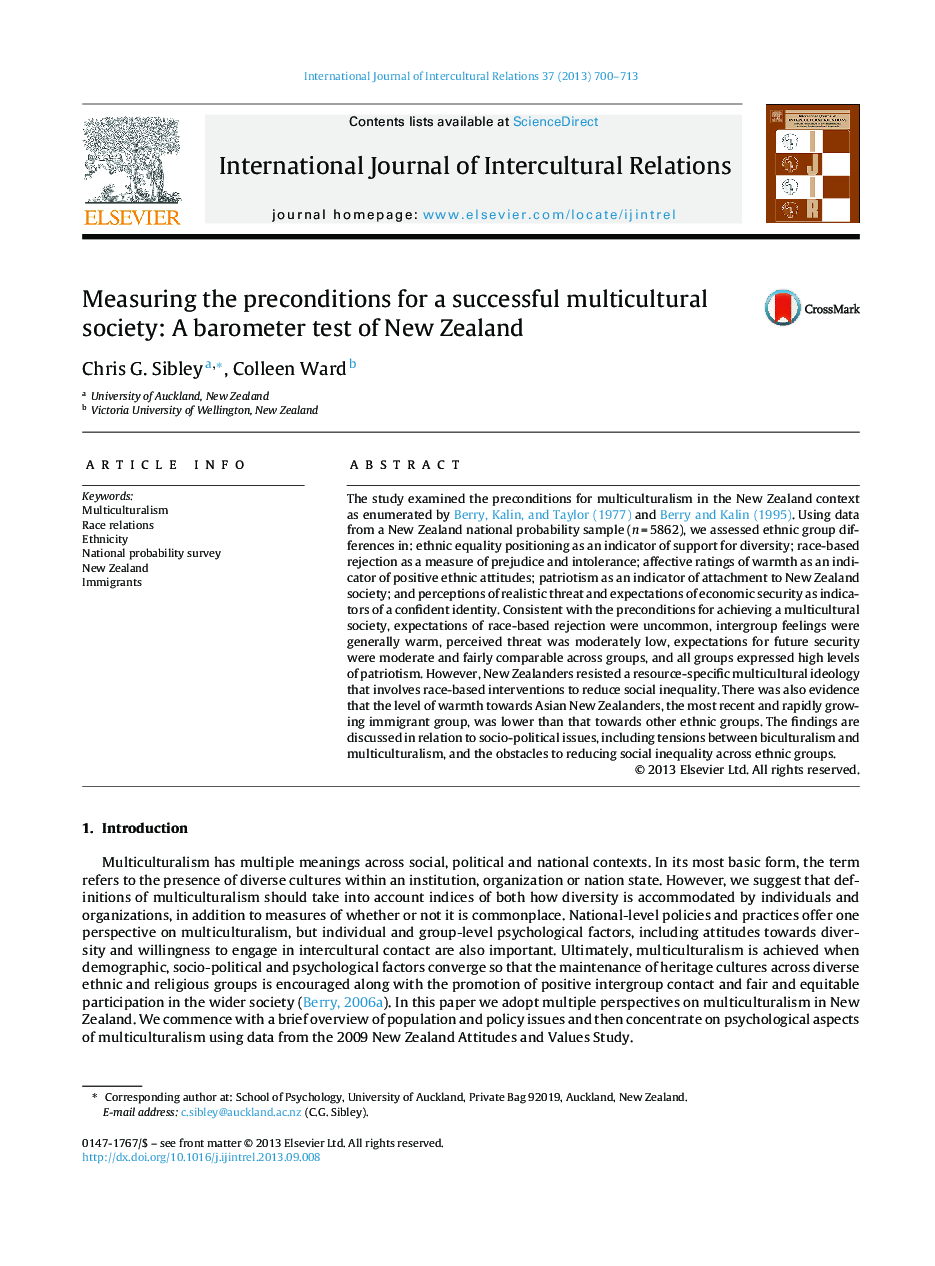| Article ID | Journal | Published Year | Pages | File Type |
|---|---|---|---|---|
| 947223 | International Journal of Intercultural Relations | 2013 | 14 Pages |
The study examined the preconditions for multiculturalism in the New Zealand context as enumerated by Berry, Kalin, and Taylor (1977) and Berry and Kalin (1995). Using data from a New Zealand national probability sample (n = 5862), we assessed ethnic group differences in: ethnic equality positioning as an indicator of support for diversity; race-based rejection as a measure of prejudice and intolerance; affective ratings of warmth as an indicator of positive ethnic attitudes; patriotism as an indicator of attachment to New Zealand society; and perceptions of realistic threat and expectations of economic security as indicators of a confident identity. Consistent with the preconditions for achieving a multicultural society, expectations of race-based rejection were uncommon, intergroup feelings were generally warm, perceived threat was moderately low, expectations for future security were moderate and fairly comparable across groups, and all groups expressed high levels of patriotism. However, New Zealanders resisted a resource-specific multicultural ideology that involves race-based interventions to reduce social inequality. There was also evidence that the level of warmth towards Asian New Zealanders, the most recent and rapidly growing immigrant group, was lower than that towards other ethnic groups. The findings are discussed in relation to socio-political issues, including tensions between biculturalism and multiculturalism, and the obstacles to reducing social inequality across ethnic groups.
